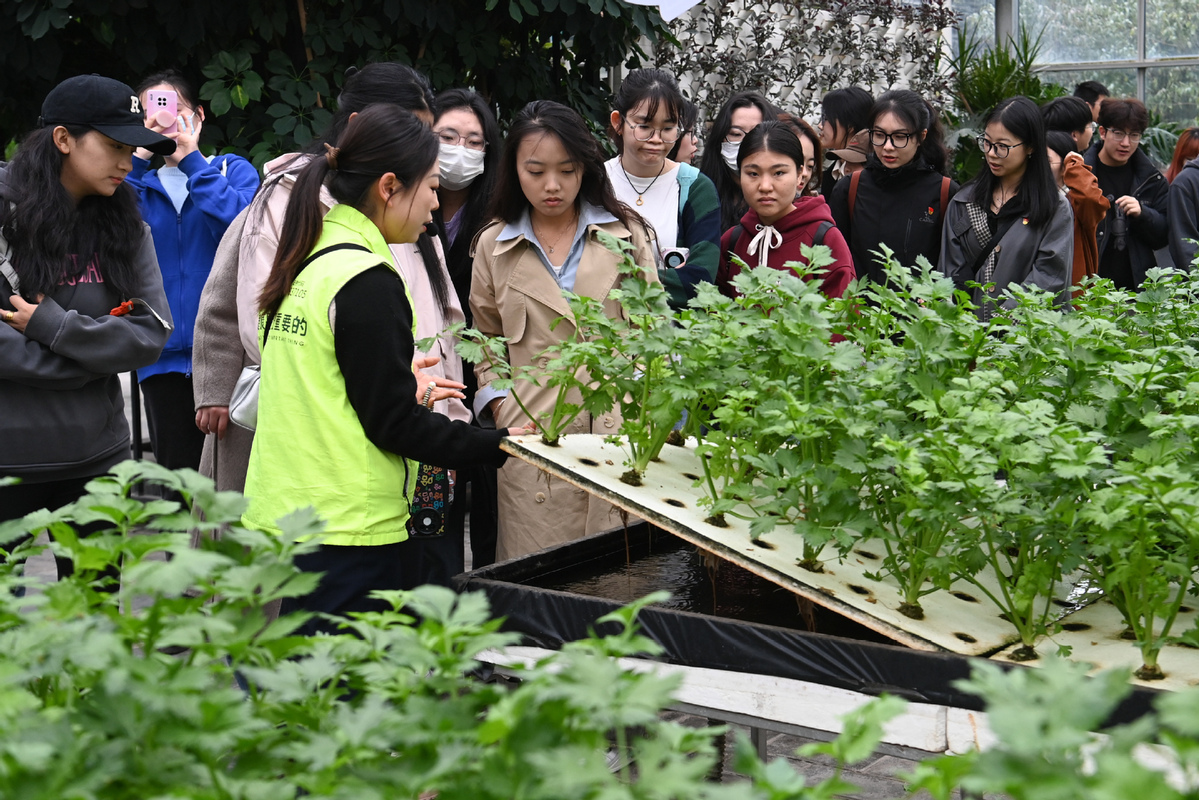Agri fair features range of domestic innovations
By Qin Feng in Xi'an and Li Lei in Beijing | China Daily | Updated: 2024-11-02 07:16

The country's increasing adoption of smart technologies in food production was recently showcased at an annual fair in Yangling, Shaanxi province, which featured a range of domestic agricultural innovations focused on boosting productivity.
Among those displayed at the 31st China Yangling Agricultural High-tech Fair included a digital replica of an irrigation system designed to improve water efficiency. The system has helped Shaanxi province, a major wheat production area, curb agricultural water usage by about 18 million cubic meters each year and cutting electricity consumption by 20 million kilowatt-hours.
Drones customized for monitoring orchards situated in mountainous regions, along with tablets that allow for remote control of fertilization during crop watering, are also attracting significant attention from fair visitors.
At the booth of Raintech, an agricultural startup in Beijing, a range of instruments were on display, including a mini-meteorological station capable of monitoring greenhouse environment and sending real-time data, such as temperature, to a smartphone app.
"The sensors integrated into the device can also monitor humidity, light intensity, atmospheric pressure and carbon dioxide levels," said Liu Hongtao, manager of the company.
By analyzing this data using AI-driven algorithms, the system can predict nighttime temperatures and alert growers to potential frost damage.
This innovation — coupled with other devices aimed at automating greenhouse environmental control, such as a supplementary lighting system — significantly benefits the advancement of facility agriculture.
This sector has stringent light and temperature requirements during both day and night, making environmental control technologies crucial for optimal production.
Data from the Ministry of Agriculture and Rural Affairs showed that, currently, 2.67 million hectares of crops are grown in greenhouses in China.
Greenhouse farming also plays a crucial role in the production of animal protein, with 70 percent of the country's meat, eggs and milk and 52 percent of aquatic products relying on this method of cultivation.
In September, the State Council, China's cabinet, issued a guideline aimed at developing a diversified food supply system, which emphasized the need to expedite the growth of greenhouse farming in the country as part of the national effort to bolster food security.
The proliferation of smart technologies such as those offered by Raintech has highlighted the productivity potential of next-generation farming innovations.
In October, the agricultural ministry issued a guideline urging the promotion of next-generation technologies like the internet of things, big data, artificial intelligence and robots in agricultural settings.
Zhao Jia, the deputy general manager of Pengzhanggui, a technology company in Yangling specializing in automation and precision farming, mentioned that his company has been participating in the fair for five consecutive years. He noted the evolution of their products from the first-generation, which were as large as old-fashioned washing machines, to the latest product, shrinking to the size of a tablet.
The fair's organizer said that over the past 30 years, the event has presented more than 190,000 technologies and programs to 33 million visitors.
Over the years, the fair has come to symbolize Yangling's transformation from a rural town into a renowned agricultural science city. Yangling, previously a rural area of Xianyang city, Shaanxi, became China's first agricultural high-tech industrial demonstration zone in 1997.
Twenty years later, the region was designated a free trade experimental zone, the only one in the country with a focus on agriculture.
In 2019, it was established as an agricultural base for the Shanghai Cooperation Organization.
Contact the writers at lilei@chinadaily.com.cn
























